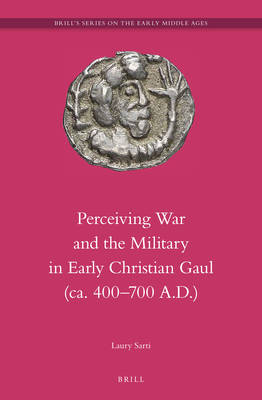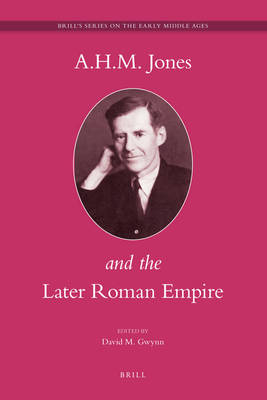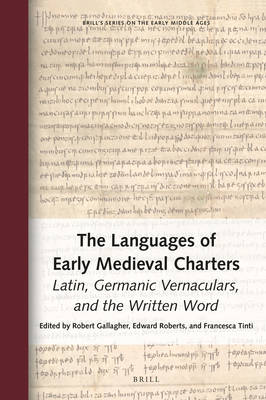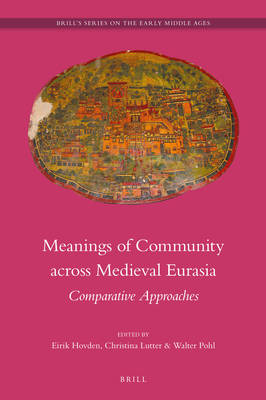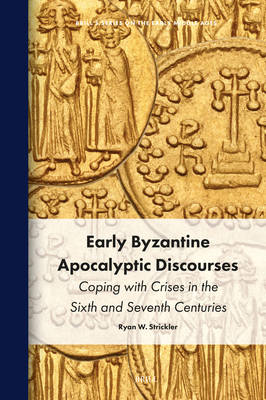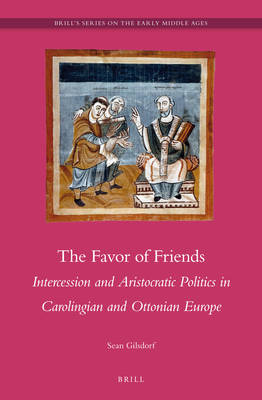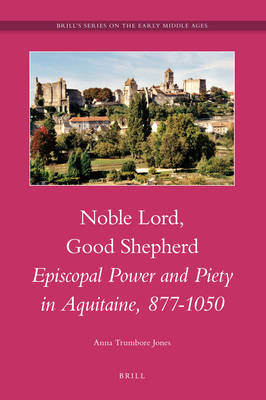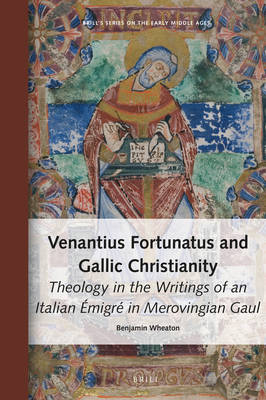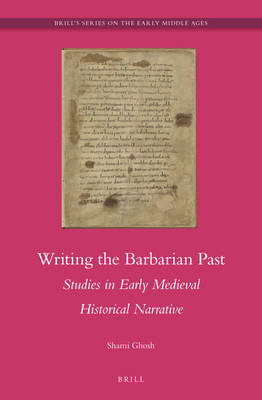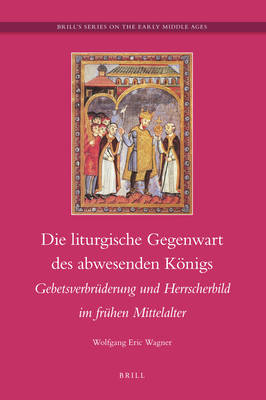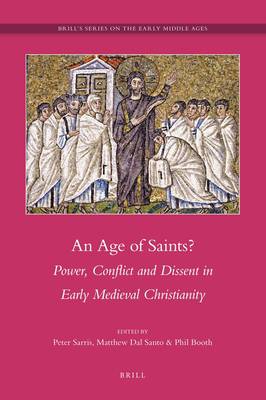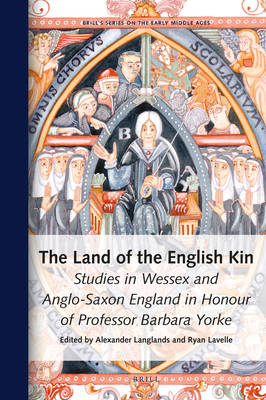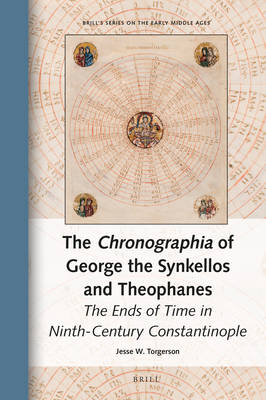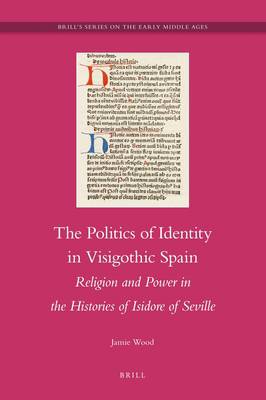
- Retrait gratuit dans votre magasin Club
- 7.000.000 titres dans notre catalogue
- Payer en toute sécurité
- Toujours un magasin près de chez vous
- Retrait gratuit dans votre magasin Club
- 7.000.0000 titres dans notre catalogue
- Payer en toute sécurité
- Toujours un magasin près de chez vous
-
Perceiving War and the Military in Early Christian Gaul (Ca. 400-700 A.D.)
Laury Sarti
- Livre relié | Anglais | Brill's the Early Middle Ages | n° 22
- The passage from Antiquity to the Middle Ages has been largely studied in the light of the thesis of a gradual transformation, which is in contradicti... Savoir plus
222,95 €Livraison 1 à 4 semaines222,95 €Livraison 1 à 4 semaines -
Cemeteries and Society in Merovingian Gaul
Guy Halsall
- Livre relié | Anglais | Brill's the Early Middle Ages | n° 18
- Seven of Guy Halsall's most important essays on the social interpretation of Merovingian cemetery archaeology are collected in this volume. The openin... Savoir plus
317,45 €Livraison 1 à 4 semaines317,45 €Livraison 1 à 4 semaines -
A.H.M. Jones and the Later Roman Empire
David Gwynn
- Livre relié | Anglais | Brill's the Early Middle Ages | n° 15
- The appearance in 1964 of A.H.M. Jones' The Later Roman Empire 284-602: A Social, Economic, and Administrative Survey transformed the study of the Lat... Savoir plus
245,95 €Livraison 1 à 4 semaines245,95 €Livraison 1 à 4 semaines -
The Languages of Early Medieval Charters
- Livre relié | Anglais | Brill's the Early Middle Ages | n° 27
- This is the first major study of the interplay between Latin and Germanic vernaculars in early medieval records. Building on previous work on the uses... Savoir plus
261,45 €Livraison 1 à 4 semaines261,45 €Livraison 1 à 4 semaines -
Meanings of Community Across Medieval Eurasia
- Livre relié | Anglais | Brill's the Early Middle Ages | n° 25
- This volume explores some of the many different meanings of community across medieval Eurasia. How did the three 'universal' religions, Christianity, ... Savoir plus
280,95 €Livraison 1 à 4 semaines280,95 €Livraison 1 à 4 semaines -
Early Byzantine Apocalyptic Discourses
Ryan W Strickler
- Livre relié | Anglais | Brill's the Early Middle Ages | n° 32
- The Byzantine Empire faced many threats, but few were as great as the events of the sixth and seventh centuries, when paranoia, plagues, and wars thre... Savoir plus
181,95 €Pré-commander, date de disponibilité inconnue181,95 €Pré-commander, date de disponibilité inconnue -
The Favor of Friends
Sean J Gilsdorf
- Livre relié | Anglais | Brill's the Early Middle Ages | n° 23
- The Favor of Friends offers the first book-length exploration of intercession--aid and advocacy by one individual or group in behalf of another--withi... Savoir plus
221,45 €Livraison 1 à 4 semaines221,45 €Livraison 1 à 4 semaines -
Noble Lord, Good Shepherd
Anna Trumbore Jones
- Livre relié | Anglais | Brill's the Early Middle Ages | n° 17
- The bishop was a figure of unparalleled importance in the tenth and eleventh centuries, as he married the advantages of his noble birth to the sacrame... Savoir plus
256,45 €Livraison 1 à 4 semaines256,45 €Livraison 1 à 4 semaines -
Venantius Fortunatus and Gallic Christianity
Benjamin Wheaton
- Livre relié | Anglais | Brill's the Early Middle Ages | n° 29
- A wandering "Orpheus among the barbarians," a lively flatterer of the powerful and an appreciator of good food and pleasant company: the sixth-century... Savoir plus
199,95 €Livraison 1 à 4 semaines199,95 €Livraison 1 à 4 semaines -
Writing the Barbarian Past: Studies in Early Medieval Historical Narrative
Shami Ghosh
- Livre relié | Anglais | Brill's the Early Middle Ages | n° 24
- Writing the Barbarian Past examines the presentation of the non-Roman, pre-Christian past in Latin and vernacular historical narratives composed betwe... Savoir plus
280,95 €Livraison 1 à 4 semaines280,95 €Livraison 1 à 4 semaines -
Die Liturgische Gegenwart Des Abwesenden Königs
Wolfgang Eric Wagner
- Livre relié | Anglais | Brill's the Early Middle Ages | n° 19
- It has for decades been part of the canon of maxims of basic research that most images of rulers in early medieval book illustrations have been transm... Savoir plus
322,45 €Livraison 1 à 4 semaines322,45 €Livraison 1 à 4 semaines -
An Age of Saints?
Sarris Peter
- Livre relié | Anglais | Brill's the Early Middle Ages | n° 20
- The papers collected in this volume explore the strategies through which Christian authorities throughout the early medieval world both established an... Savoir plus
228,95 €Livraison 1 à 4 semaines228,95 €Livraison 1 à 4 semaines -
The Land of the English Kin
- Livre relié | Anglais | Brill's the Early Middle Ages | n° 26
- This volume draws together a series of papers that present some of the most up-to-date thinking on the history, archaeology and toponymy of Wessex and... Savoir plus
265,95 €Livraison 1 à 4 semaines265,95 €Livraison 1 à 4 semaines -
The Chronographia of George the Synkellos and Theophanes
Jesse W Torgerson
- Livre relié | Anglais | Brill's the Early Middle Ages | n° 28
- The ninth-century Chronographia of George the Synkellos and Theophanes is the most influential historical text ever written in medieval Constantinople... Savoir plus
247,45 €Livraison 1 à 4 semaines247,45 €Livraison 1 à 4 semaines -
The Politics of Identity in Visigothic Spain
Jamie Wood
- Livre relié | Anglais | Brill's the Early Middle Ages | n° 21
- Previous scholarship has interpreted Bishop Isidore of Seville (d. 636) retrospectively as the architect of the medieval Spanish church, as the father... Savoir plus
245,95 €Livraison 1 à 4 semaines245,95 €Livraison 1 à 4 semaines
15 sur 15 résultat(s) affiché(s)





